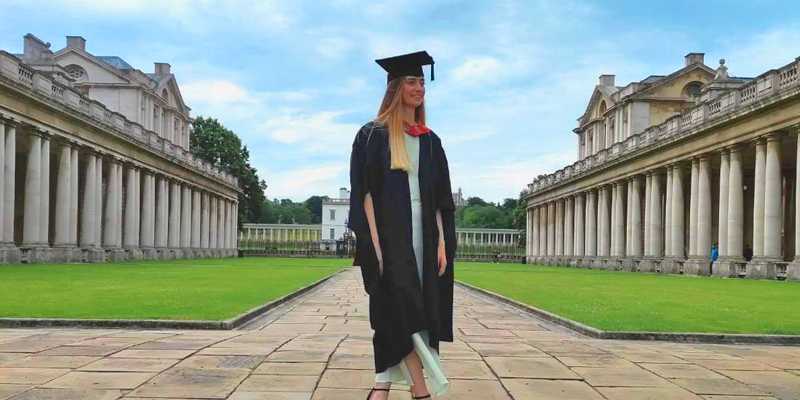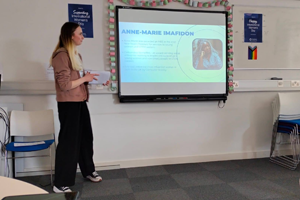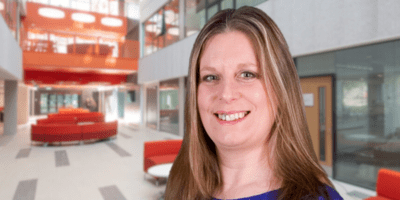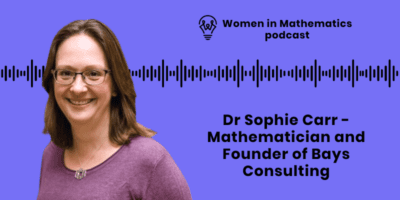Robyn Goldsmith is a PhD student at the EPSRC Centre for Doctoral Training in Statistics and Operational Research in partnership with industry (STOR-i) at Lancaster University. She is currently working on her PhD project, ‘Forecasting & Inventory Optimisation’, in partnership with Jaguar Land Rover. Robyn is also passionate about education and outreach, working on initiatives such as Florence Nightingale Day, run by the Mathematics and Statistics Department at Lancaster University to raise aspirations around maths and statistics for girls in secondary school.
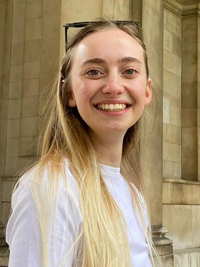
“Diversity is central to harnessing the best mathematical concepts, methods and solutions in the same way that the vitality of art, literature and music relies on the inclusion of voices from different cultures and backgrounds.”
The secret mathematician
I took a slightly unconventional route to becoming a mathematician. I found A-Level maths difficult and interpreted my struggle as a sign that I was not smart enough to succeed. I gave up on a mathematical career and decided to pursue other interests. It was not until two years after I left school that I realised how much I missed it. I worried that I had given up too early and, by counting myself out, had missed the opportunity to do something I loved.
I studied for an A-Level in Mathematics in secret and a few months later told my family that I was applying to study mathematics at university – it came as bit of a shock to them to say the least! I started a BSc in Mathematics at the University of Greenwich in South East London in 2016.
When I first started my degree, I had little confidence in my ability. Believing I did not have what it took to finish, I set a goal to just make it through to the end of the first term. My lecturers at Greenwich were the ones who really changed my outlook. They taught me that being stuck is an essential part of being a mathematician.
I remember one particular conversation where my lecturers spoke about how the most successful mathematicians are stuck for years, if not decades, on just one problem. I learnt then not to be discouraged by finding things difficult and realised that maybe the only person that was holding me back from being the mathematician I wanted to be, was me.
It was because of the patience, passion and encouragement of my lecturers that just three years after hoping to just make it to the end of my first term, I extended my time at Greenwich and later finished with a Master’s level qualification (MMath) and a desire to embark on PhD studies. The following year, I joined the Centre for Doctoral Training in Statistics and Operational Research in partnership with industry (STOR-i) at Lancaster University. I am now in my second year of my PhD, having started in October 2021.
‘Winning’ at algebra
My activities differ wildly from day to day. Some days I meet with my supervisors, attend research talks or write up results. Other times I am programming simulations, or teaching undergraduate students. Sometimes I can spend days just tackling ugly algebra! Last week, I was presenting my research at a conference in Birmingham and later attended a committee meeting for the Institute of Mathematics and its Applications in London.
I do a lot of outreach work so I often stand in front of large groups of school students talking about mathematics and my journey as a woman in STEM. There really is no typical day. Likewise, some days can be really productive and others very slow and frustrating. It is not uncommon for me to be stuck, then unstuck and then stuck all over again within the space of an afternoon – I am a mathematician after all!
Saving money and the environment by minimising waste
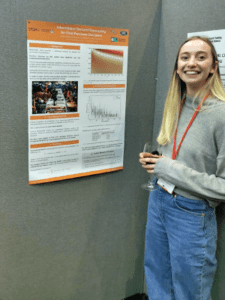
Creative and collaborative
Mathematics is an inherently creative and collaborative subject. There is a long-standing myth that mathematicians work alone, along with the stereotype of the lonely genius maths professor in a dusty office scribbling on a blackboard. It is definitely not the case. In my experience, the best ideas usually come from mathematicians with different experiences working together.
Diversity is central to harnessing the best mathematical concepts, methods and solutions in the same way that the vitality of art, literature and music relies on the inclusion of voices from different cultures and backgrounds.
Introducing Florence Nightingale Day
On the most recent Florence Nightingale Day, I was a speaker at an event organised by the Lancaster University Mathematics and Statistics Department in an effort to promote mathematics and statistics to young women in years 10 and above. The Florence Nightingale Days showcase successful women in mathematics at various stages of their careers and display information about the broad range of possibilities offered by a degree in mathematics or statistics.
I absolutely loved talking about my journey to a PhD. I also spoke about the importance of being stuck and introduced some of my favourite techniques for predicting the future and looking through a mathematical crystal ball. It was such a joy to meet so many young mathematicians, they were incredibly inspiring!
Florence Nightingale — a pioneering statistician as well as a famous nurse
I think it is interesting that Florence Nightingale is almost exclusively remembered for her nursing skills and less so for being a pioneering statistician. I think that the contributions to STEM made by women and those from other unrepresented groups are often overlooked. Katherine Johnson, Mary Jackson, and Dorothy Vaughan, the mathematicians who played a pivotal role in launching John Glenn into space in 1962, also known as the Hidden Figures, are another example of this.
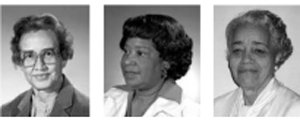
In the Crimean War, Florence Nightingale’s statistical work showed that more soldiers were dying from diseases as a result of unsanitary conditions than from combat injuries. Nightingale innovatively used graphics to communicate her findings in the hope to convince MPs and army officials of the need for change. Her work saved countless lives. Nightingale was a trailblazer in the dissemination of statistical ideas to non-mathematicians, which is as relevant today as ever.
Get involved
Florence Nightingale Day provides an excellent opportunity to put a spotlight on women in mathematics and statistics. It gives us a chance to highlight the contributions women have made to our field and ensure that their work receives the recognition it deserves. It is also an opportunity for us all to showcase the breadth of career possibilities within STEM and help inspire future generations and encourage new innovators.
We can all take part in this in some way whether that is by organising a celebratory event, engaging in an outreach programme or even sharing the work of a mathematician or statistician with colleagues in the break room.
Coming up
Something I am especially looking forward to in the next few months is the Heidelberg Laureate Forum. I was recently selected to take part as one of 200 young ‘bright minds’ in mathematics and computer science from around the world. I cannot wait to connect with other young researchers and meet pioneers from the scientific community.
In addition to PhD work, I like to write articles that communicate how mathematics can be used to explore phenomena and help explain the world around us. I am enthusiastically working on current ideas and I am hoping I will be able to get my work published in the future.
There are lots of outreach events that I am excited about on the horizon. I love debunking myths about what a mathematician does and challenging preconceptions about what a mathematician looks like. I think it is important to remember that subconsciously (and sometimes even consciously) many women are told that STEM is not a place for them. I am looking forward to finding more opportunities to remove barriers to mathematics, aiming to make our subject accessible to all.

